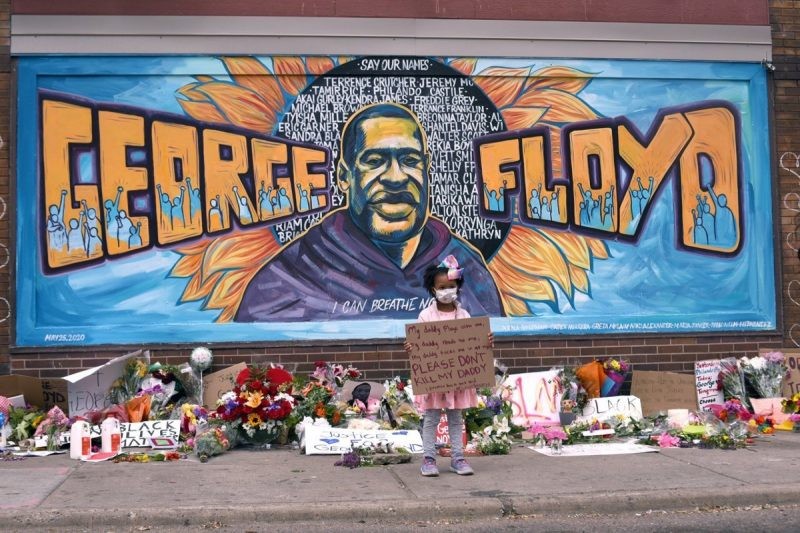The suffocation of the American dream

A News Analysis
“I can’t breathe,” African-American George Floyd struggled to repeat as Derek Chauvin, a white police officer, knelt on his neck last week in the U.S. city of Minneapolis.
Eight minutes and 46 seconds later, Floyd died.
A day later, protests against racism and police brutality erupted, spreading rapidly across the United States in six days.
Floyd’s desperate dying plea echoed the last words of Eric Garner, another African American man who died in police custody in 2014 in New York.
Garner’s death also ignited high-profile protests nationwide. U.S. TV network NBC news exclaimed on Monday that “from Eric Garner to George Floyd: protests reveal how little has changed in 6 years.”
Racism has been a chronic problem in the United States, with a history almost as old as the country itself. Floyd’s death serves as a new, chilling reminder that racial discrimination seems to be showing no signs of improvement among the American population.
In a report entitled Race in America 2019, released in April by the Pew Center, 58 percent of Americans surveyed in 2019 say race relations in the United States are bad, and of those, few see them improving. Some 56 percent think the current administration has made race relations worse.
The ravaging coronavirus pandemic, meanwhile, has served to highlight the long tradition of racial inequality in the United States, after recent data compiled by the non-partisan APM Research Lab revealed that African Americans are suffering a disproportionate share of the negative health and economic impacts of COVID-19.
What’s more, Washington’s promise of equality and justice for all in the country has remained hollow at best. For many black and other minority groups, the American dream of equal opportunity and upward social mobility irrespective of race is slipping away.
Take the job markets for example. Even before the pandemic hit the United States, the unemployment rate among African Americans was almost twice the national rate.
As of now, the coronavirus outbreak has been distributing economic pain even more unevenly. With the national unemployment rate rising to 14.7 percent in April, black and Hispanic unemployment rates have jumped to 16.7 percent and 18.9 percent respectively, the U.S. Bureau of Labor Statistics reported early May.
However, those problems themselves are not the most terrible part of a deeply-divided America — Washington’s continued failure to come up with any serious answers is. And the current White House administration has made matters worse.
Amid the ongoing anti-racism protests in the country, decision-makers in Washington, instead of trying to soothe the pain and anger of the public, have been fanning the flames, calling protesters “THUGS,” and threatening them with “the most vicious dogs, and most ominous weapons.”
Playing the race card has been the trademark of this administration. It remains fresh in the mind that this administration rolled out an executive order that banned foreign nationals from seven predominantly Muslim countries from visiting the country and suspended the entry of all Syrian refugees indefinitely only one week after assuming power.
And in the middle of the rampaging COVID-19 pandemic, this administration has been busy deporting Latin American migrants back to southern-neighboring countries, showing little care that such mass deportation could make the pandemic situation in the region worse.
And because of Washington’s reckless disinformation campaign to scapegoat China for its own fiasco in handling the outbreak, prejudice and hate crimes targeting Chinese and other groups of Asian origin have also shot up.
An Ipsos poll in April found that over 30 percent of Americans have witnessed COVID-19 bias against Asians. The STOP AAPI HATE reporting center, tasked to track coronavirus discrimination-related cases, has received 1,710 incident reports from Asian Americans across the country since mid-March.
It seems the incumbent U.S. administration has been leading the country in an increasingly polarized American political environment by dividing the American public, and appealing to the worst of humanity. That divide-to-win tactic will only form and reinforce a vicious cycle where division triggers more hostility, and further hostility begets greater racial alienation.
Many in the United States love to describe their country as a nation of immigrants. It once truly was. But now, with one I-can’t-breathe case after another, the day when the American dream that used to celebrate ethnic diversity and equal opportunity will finally be choked to death seems not far away.

